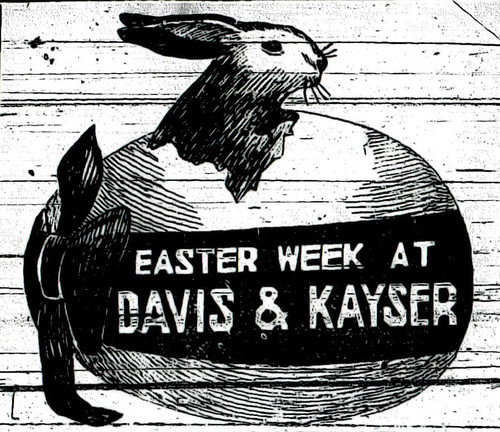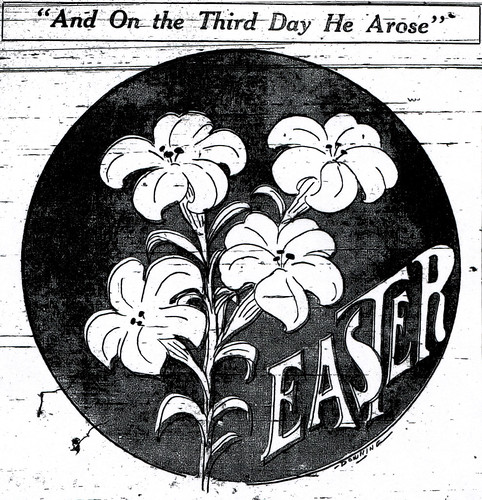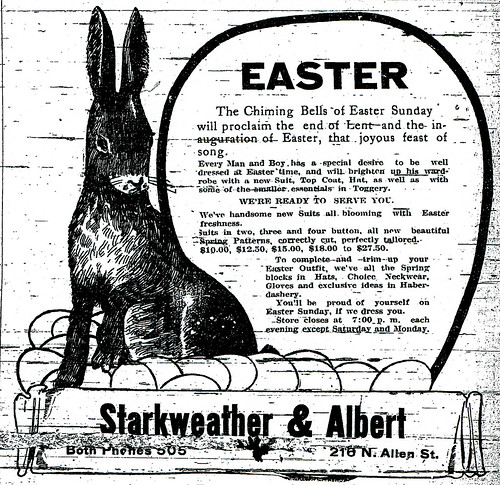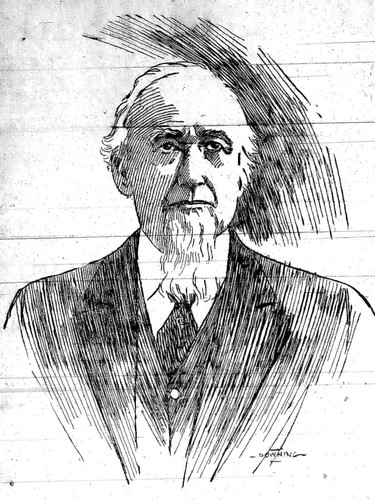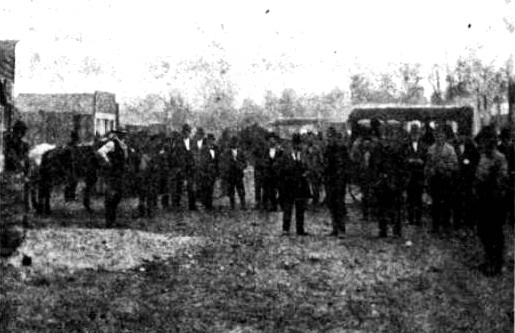Every day hundreds, if not thousands, of automobiles rumble through downtown Joplin. Most drivers go about their business without a thought that there may be empty mine shafts below their wheels. We here at Historic Joplin do — which is not to say we’re afraid of our vehicle plunging into a gaping chasm on Main Street, but in an area riddled with mine shafts, tunnels, and sinkholes, the ground giving way does happen from time to time. Mine shafts even presented a threat to folks, who despite having a familiarity with the dangers of working in the mines, had the misfortune to make a misstep. Or, in the case of James “Jim” T. Bodine, the wrong way home.
In the summer of 1904, Jim Bodine was on horseback herding the family cow home for the night. As he passed south of Twenty-Sixth Street, he had to ride through some brush when he and his horse unexpectedly encountered an abandoned mine shaft. Bodine, who was a, “well known and very popular mine superintendent and operator,” undoubtedly knew about mine safety, but riding your horse into a mine shaft in the middle of the night was something he had thought little about up to this point. Bodine’s horse pitched forward into the shaft. It managed to dig its forelegs into the mine shaft so that it seemed as if it would be able to get both itself and Bodine out of the shaft. Unfortunately, its legs buckled and the two plunged sixty feet into a water-filled mine shaft.

Abandoned mines poise significant danger risk in any mining area, such as this one located in California.
Both man and horse surfaced with Bodine still in the saddle. The horse struggled to keep its nose above the water. Bodine tried to sit in the saddle as long as he could, but realized the horse could throw him at any time, so he slipped into the water. His head throbbing from a bump to his head, Bodine managed to climb two or three feet onto the walls of the mine shaft. As the strength began to leave his arms, he began to cry for help. There he remained for over an hour yelling for help. In the water below Bodine, his horse was “plunging and striking his feet right and left.” Gritting his teeth, he sank his fingers “into the sides of the shaft as far as possible.”
Fortunately for Bodine, a Mrs. Carter was passing by when she heard his cries for help. She “ran to the shaft, shouted a word of encouragement to Mr. Bodine, and then ran for help.” Mrs. Carter brought James Ingram, D.E. Krokroski, and H. Dillon back to the mine shaft. There the three men lowered a rope to Bodine which he tied around his waist. Together the men pulled Bodine up to the surface where he was rushed home. Four doctors were summoned, but found that Bodine was in good shape despite his harrowing ordeal.
Bodine later told a Globe reporter, “There was a time when I thought I would have to give up and fall into the water. After Mrs. Carter looked into the shaft and then ran for assistance it seemed hours before assistance came. I felt my strength gradually giving away, and it seemed that every minute would be my last.” Even as the rope was being lowered to him, Bodine confessed, “I thought I would not e able to keep my position until I could get it tied, but it is remarkable how a man’s strength will stay by him when his life is at stake.” As for his horse, several men tried to extricate it, but as of the newspaper’s deadline, they had not been able to pull it out of the shaft.
Source: The Joplin Globe
